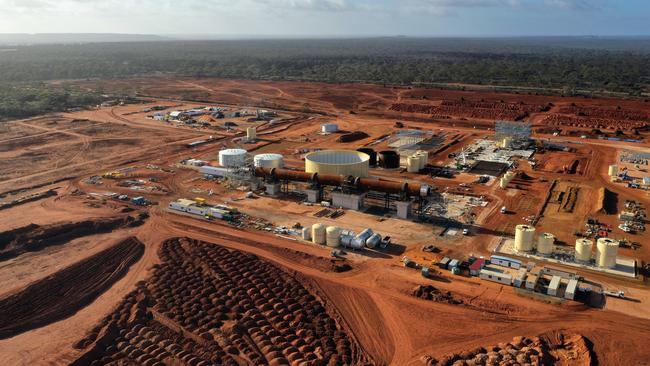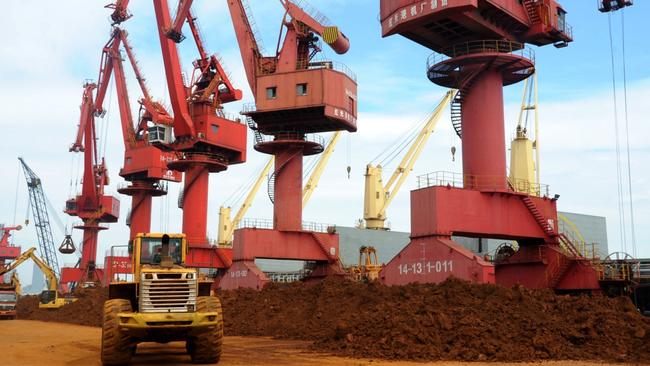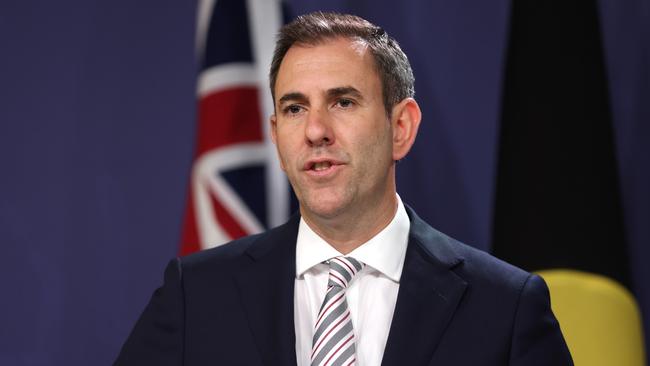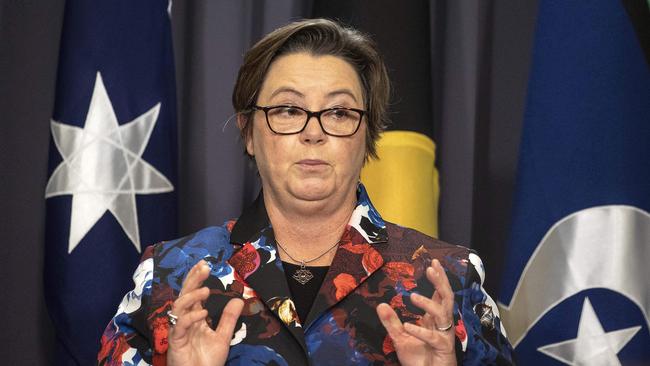
Critical minerals such as rare earths, lithium and cobalt are now identified as playing key roles in the global move to decarbonisation, and essential for the production of the batteries needed for electric vehicles as well as solar panels and wind power turbines.
Raising finance for the projects – which now include mining and downstream processing – is still a challenge facing a sector that has had a history of volatile pricing.
Processing minerals like rare earths and lithium in a way that meets environmental standards demands a mixture of money and cutting-edge technology.
It is already clear the government is keen to use Australia’s riches in this sector to work more closely with allies such as the US, Japan and Europe.
But one question to be answered is the role of investment from China, Australia’s major trading partner, which needs these minerals as part of its own commitment for decarbonisation, as it moves to increase its use of renewable energy and shift to electric vehicles.

Is the critical minerals sector an opportunity for closer ties with China as a time when Australia is moving to “stabilise” a once tense political relationship with the largest economy in the region, or will China be overtly excluded from new investment in the same way as Australia announced its ban on using Huawei equipment for the NBN and 5G network?
On the one extreme, there is the announcement by Canada in November ordering three companies – Zangge Mining Investment (Chengdu), Chengze International and Sinomine Rare Metals Resources – to sell out from companies operating lithium mines in Canada.
On the other hand, there is already Chinese investment in the sector in Australia, made with a view to ensuring sources of supply.
A large proportion of the lithium produced in Australia – on some estimates as high as 90 per cent – already goes to China.
China’s Tianqi Lithium has a joint venture investment in the Greenbushes project in Western Australia, one of the largest lithium producers in the world, while Ganfeng Lithium has investments in two other mines in the state.
While there are rumours the government might take a tough line on Chinese investment in the sector, the latest official policy is in a speech given by Jim Chalmers to The Australian’s Critical Minerals Summit in Sydney last week that leaves the door open.
The Treasurer said he had “asked the Treasury to begin working with the Foreign Investment Review Board, with the Critical Minerals Office in the Department of Industry, Geoscience Australia, the Department of Foreign Affairs and Trades, as well as and state and territory governments to: identify relevant data about investment in critical minerals companies, consolidate this data so we can better understand the dynamics of this investment, and develop more sophisticated methods of tracking investment patterns in critical minerals in the future.

“Part of securing crucial foreign investment is co-operating more closely with our key partners – on investment opportunities at all stages of the value chain.”
But, lest this be seen as a precursor to a hard line, Canadian-style approach, Resources Minister Madeleine King has said: “We welcome and encourage foreign investment in critical minerals. Attracting more global capital to our shores will be essential for us to realise the full benefits of this opportunity.
“Securing crucial foreign investment requires close co-operation with our key partners – on investment opportunities at all stages of the value chain. Chinese companies have been an important partner in developing resources projects in Australia.”
While this may be the official line, a key issue will be how FIRB handles applications for new investments in the sector. There is already a history of it stepping in to block bids from Chinese companies in the sector.
In 2009 it blocked a bid by state-owned China Non-Ferrous Metal Mining, which was offering $252m for a 51.6 per cent stake in Lynas. The company, Australia’s major rare earths player, arranged financing from Japanese lenders.
In 2020, the Morrison government also blocked an attempt by the state-owned Baogang to take a 13 per cent share in Northern Minerals, owner of the Browns Range rare earths deposit in WA.
It also blocked Yibin Tianyi Lithium Industry from taking a 12 per cent stake in AVZ Minerals, which has lithium projects, with associated tin and tantalum, in the Democratic Republic of Congo.

On a broader level there have been concerns expressed by the delays in the FIRB approval process. This was a key point in a report by WA-based consulting firm State of Play titled Critical Minerals, An Industry Perspective, which tapped into the views of the local sector and recommended a streamlining of the FIRB approval processes.
Frustration was expressed at the delays in the process as well as what was seen as inconsistencies in the FIRB process.
“People are frustrated, mostly with the pace of processing and transparency around the case-by-case review process,” State of Play chief Graeme Stanway told The Australian this week.
As Stanway pointed out, there is a global push for more self-reliance in the critical minerals sector, particularly away from China’s dominant role in the sector.
But he argues that, given that China is Australia’s largest trading partner, “decoupling is likely not to be in our interests from an economic or ultimately a security perspective. There is a role for Chinese investment in projects – particularly in critical minerals where the offtake arrangements can be structured so that they do not have a material impact on supply chain risk.”
The Biden administration’s Inflation Reduction Act is providing $US2.8bn ($4.2bn) in grants to accelerate US production of critical minerals – money that has also gone to three Australian companies: Novonix, Syrah Resources and Talon Metals.
Critical minerals are being billed as the next big mining boom in Australia. But unlike coal, iron ore and LNG, it is a sector that is becoming increasingly seen through a political lens that will need to be carefully managed.




While the potential for Australia to play a key role in the development of critical minerals is attracting increasing attention from the federal government, the sector is also taking on foreign policy elements that have not been seen in the mining industry in Australia in recent times.